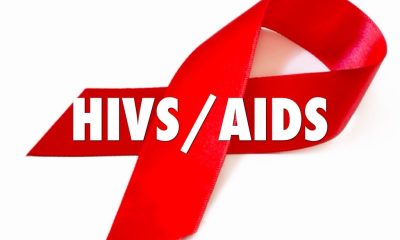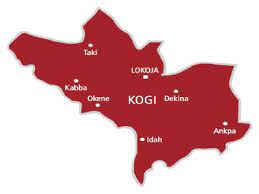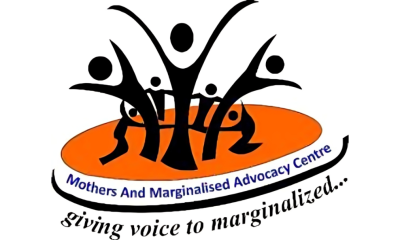Health
Imo Gets Primary Health Care Awareness Committee

From Marcel Duru, Owerri
Imo state Primary Health Care Development Agency which oversees the smooth running of Primary Healthcare Centers and controls outbreak of diseases in rural areas has inaugurated a Social Mobilization Technical Committee.
The committee has the responsibility of overseeing the smooth running of the activities currently lined up for the agency.
Addressing members of the committee, the Executive Secretary of the Agency, Dr Uloma Evi- Parker said the team would be laying the blueprint for subsequent campaigns and activities of the agency, adding that the activities are basically on immunization and disease control.
Dr Uloma Evi-Parker noted that Imo was at risk of meningitis, a multi faceted infection, which thrives during dry season and heat periods.
She commended the Federal Government for the support to health care delivery in the country, disclosing that the support ensured the increase of measles vaccines to two doses for children from 15months to 23months as against the one dose given to children in 9months.
She, therefore, appealed for concerted efforts of the team in reaching out and sensitizing people in the rural communities of the state.
The team has the Executive Secretary of the Agency, Dr Evi- Paker as the Chairman and Director of Disease Control and Head of Immunization Unit state Ministry of Health, Dr Uchechukwu Odom as the vice chairman, the State Health officer,
Chinwe Abanobi is the Secretary while other members of the committee were drawn from MDAs, the traditional institution and the media.
Violet Igwe, Social Mobilisation and Technical Committee (SOMTEC) Desk Officer in the Ministry of Information, in a speech charged members of the committee to live up to expectations.
She said the sensitization activity should be given every seriousness it deserved.
In her remarks, Dr Odom Uchechukwu Head of Immunization Unit, said that the agency would be embarking on vaccination for the second dose of measles between 7th Oct to 13th Oct., while the house to house vaccination would take place in November.
He harped on the need for parents to always keep immunization cards safe for proper documentation.
Health
Nigeria Requires N2.2trn to Eliminate Cervical Cancer by 2030 – Prof. Adewole

Prof. Isaac Adewole, Chairman of the National Task Force on Cervical Cancer Elimination (NTF-CCE), says Nigeria will require N2.2 trillion to implement comprehensive cervical cancer interventions between 2026 and 2030.
Adewole, a former Minister of Health, made this known on Tuesday in Abuja during the launch of the Partnership to Eliminate Cervical Cancer in Nigeria (PECCiN), an initiative of the NTF-CCE.
The initiative, launched at the State House by the First Lady, Sen.
Oluremi Tinubu, aims to accelerate Nigeria’s achievement of the World Health Organisation’s (WHO) 90-70-90 targets for cervical cancer elimination.reports that PECCiN seeks to catalyze multi-sectoral efforts to prevent, screen, and treat cervical cancer through sustained coordination, resource mobilization, and scale-up of service delivery.
According to Adewole, the interventions are grouped into three categories: primary prevention, secondary prevention, and tertiary treatment.
He explained that the Human Papilloma Virus (HPV) vaccination programme will be delivered through fixed sessions at health facilities and outreach-based immunisation campaigns.
“The total direct implementation cost over the five years is estimated at N387.52 billion,” he said.
“Including administrative and supervisory costs, the total cost of HPV vaccination will amount to N426.28 billion.”
He said cervical cancer screening over the same period is estimated to cost N351 billion, targeting 14.4 million women.
On tertiary treatment, Adewole noted that nearly 300,000 women will require care for invasive cervical cancer between 2026 and 2030.
“The country is projected to spend approximately N1.42 trillion on treatment, with the cost per patient dropping from N8.7 million in 2026 to N4.1 million by 2030,” he added.
In spite of other competing priorities, he urged investment in cervical cancer elimination due to its high return on investment.
“We seek your commitment and support to implement robust cervical cancer elimination interventions in Nigeria.
“This will ensure that every woman is financially protected throughout her life and no eligible adolescent is left behind in HPV vaccination.”
Dr Muyi Aina, Executive Director of the National Primary Health Care Development Agency (NPHCDA), said the Federal Government launched the HPV vaccine campaign on Oct. 24, 2023, targeting girls aged 9 to 14.
He announced that 14 million girls had already received the vaccine.
“This milestone is unprecedented globally and was achieved through strong leadership from President Bola Tinubu, the support of the First Lady, and collaboration across ministries and communities.
“The media also played a key role in spreading awareness and engaging civil society.”
Aina reaffirmed the agency’s commitment to sustaining the programme, stating that the HPV vaccine has been incorporated into the routine immunisation schedule and that primary healthcare centres are being revitalised to support service delivery.
Prof. Usman Aliyu, Director-General of the National Institute for Cancer Research and Treatment (NICRAT), described cervical cancer as a serious burden affecting mothers, sisters, caregivers, and peers across communities.
He said the growing burden prompted the development of the National Strategic Plan for the Prevention and Control of Cervical Cancer (2023–2037).
“This plan, reflecting best practices and local realities, serves as our national roadmap for cervical cancer elimination,” he said.
Aliyu added that NICRAT has constituted a national taskforce comprising experts and stakeholders to drive implementation.
He also highlighted efforts to promote innovative research, harmonise treatment protocols, and expand culturally sensitive awareness and screening campaigns.
The event featured the presentation of the National Cervical Cancer Elimination Plan and the unveiling of the PECCiN partnership logo. (NAN)
Health
Otu’s Wife Champions Healthcare Access for 500 Elderly Citizens

The Wife of the Cross River Governor, Mrs Eyoanwan Otu, has sponsored the enrollment of 500 senior citizens, aged 70 and above, into the Cross River Health Insurance Scheme.
The gesture, which covers the premiums of the elderly citizens for two years, targeted the vulnerable senior citizens in the 18 Local Government Areas of the state.
The Director General of the agency, Mr Godwin Iyala, described the initiative as “a significant milestone in the first lady’s humanitarian outreach”.
According to Iyala, the first lady had already made full financial commitment to cover the 500 beneficiaries for the next two years.
“This initiative prioritises our elderly population, many of whom had spent decades serving their families and communities.
“Her Excellency has once again demonstrated her deep sense of empathy and leadership.
“The ripple effect of this act is far-reaching because when the aged are cared for, families are relieved, and the moral fabric of our society is strengthened,” he said.
He commended Otu for the initiative, describing it as a lifeline for elderly citizens, particularly those in the rural areas, who face significant barriers in accessing healthcare.
Iyala stated that the Agency would begin immediate enrollment of the beneficiaries into the health insurance database, to ensure they begin to enjoy prompt and uninterrupted access to medical services.
He further said that the initiative was expected to significantly ease the burden of healthcare cost to elderly citizens, offering them a renewed sense of dignity and security in their twilight years. (NAN)
Health
WHO Approves 2 New Vaccines to Protect Infants From RSV

The World Health Organization (WHO), on Friday, issued recommendations for two new immunisation tools to protect infants from Respiratory Syncytial Virus (RSV)They included a maternal vaccine, administered to pregnant women in their third trimester to protect their newborns.The other was a long-acting antibody injection for infants, which begins to protect within a week of administration and lasts for at least five months.
According to WHO, RSV is the leading cause of acute lower respiratory infections in children globally. It causes around 100,000 deaths and 3.6 million hospitalisations each year among children under the age of five, while infants under six months are most at risk.Alarmingly, 97 per cent of these deaths occur in low and middle-income countries, according to WHO.Although RSV can infect people of all ages, “it is especially harmful to infants, particularly those born prematurely,” a WHO official, Kate O’Brien, said.O’Brien added that around half of all RSV-related deaths occurred in babies younger than six months.Considering the global burden of severe RSV illness in infants, WHO recommended that all countries adopt either the maternal vaccine or the antibody injection as part of their national immunisation strategies.“These RSV immunisation products can transform the fight against severe RSV disease, dramatically reduce hospitalisations and deaths, and ultimately save many infant lives worldwide,” O’Brien said. (NAN)































